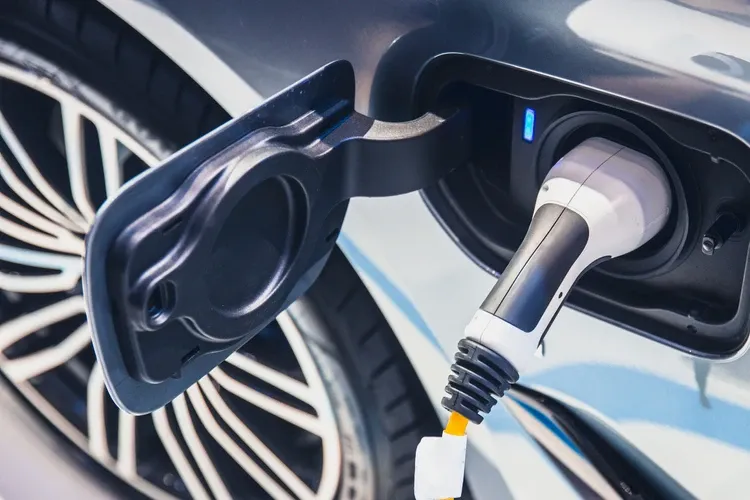Recent state and federal efforts to increase the share of electric vehicles in the marketplace present a number of concerns, including likely increases to family living expenses and an uncertain effect on the climate, according to a new report from the Manhattan Institute.
Electric vehicles, which are powered by electricity stored in batteries rather than gasoline processed by internal combustion engines, have rapidly increased in market share over the past decade. Even as there exists significant consumer demand for the nascent technology, lawmakers are seeking to mandate rapid adoption of the technology to battle climate change.
The analysis from the Manhattan Institute nevertheless observed that one cannot accurately measure the carbon dioxide emissions or overall environmental impact from an electric car. While there are “no emissions while driving” the vehicles, they require extensive mining to produce a half-ton battery with “a wide range of minerals” and need frequent recharging.
“Every claim for EVs reducing emissions is a rough estimate or an outright guess based on averages, approximations, or aspirations,” the report said. “The estimates entail myriad known unknowns about what happens upstream to obtain and process materials to fabricate the giant battery. Those factors not only vary wildly but can be big enough, alone, to wipe out from onehalf to all the emissions saved by not burning gasoline.”
Battery sizes, mine locations, and mineral refinery sites also have salient impacts on overall emissions resulting from the production and purchase of an electric car, yet existing estimates vary widely when considering the assumptions, according to the report.
With respect to the costs imposed on households from a rapid acceleration toward electric vehicles, prompted in some cases by forthcoming statewide bans on new internal combustion vehicle sales, the Manhattan Institute noted that between 60% and 80% of the costs to make batteries emerge from the availability of basic materials. Current spending plans from the global mining industry represent 10% of necessary scale increases needed for worldwide demand.
The report noted that China meanwhile has “double the market share” with energy minerals in comparison to OPEC market share with petroleum, a reality which exposes Western countries concerned about climate change to additional pressure from the communist nation. Demand increase for minerals would also create higher prices for other critical technologies.
“Even if the energy-minerals market were to be uniquely free of price manipulation, the basic economics of supply and demand points to dramatic price increases for batteries,” the report continued. “For many minerals, EV demand is transitioning from a marginal share to the dominant use. Competition for these minerals’ supply, and inevitably price pressures, will begin to have an impact on the cost of building everything from homes and buildings to appliances and computers.”
President Joe Biden has called for half of new vehicle sales to be electric by 2030 despite these concerns, while states such as California will mandate that all new passenger cars must produce zero emissions by 2035. Biden and other senior administration officials have also pressed for broader renewable energy adoption in the federal fleet and in the military.
Steve Milloy, a senior policy fellow at the Energy and Environmental Legal Institute, said in comments provided to The Sentinel that efforts to force adoption of electric vehicles are driven by “pure ideology without even a drop of common sense."
“They require an entirely new infrastructure, from ubiquitous rapid-charging stations, to reinforced parking garages to fire-proofing existing underground parking and buildings. It’s superfluous to throw in the reality that EVs make us dependent on our geopolitical enemy, Communist China,” he said. “Yet EVs are being mandated even though such a mandate is physically and economically impossible, and unwise from a security standpoint.”
Frank Lasee, the president of Truth in Energy and Climate, added in remarks provided to The Sentinel that the push for electric vehicles is “a part of leftist ideology” that will harm the poor.
“Electrification was driven by consumer demand. Indoor plumbing, toilets, telephones, hot water, computers, cell phones, and smart phones did not need massive expensive taxpayer subsidies for rapid adoption,” he noted. “Mandating electric cars is driven by wrongheaded leftist policy to combat a non-existent climate issue.”
The share of electric cars in total sales across the United States, the European Union, and China is expected to rise toward 60% by the end of the decade, largely as a result of subsidy programs and other incentives, according to a report from the International Energy Agency. Electric cars are expected to represent 18% of worldwide vehicle market share this year.



